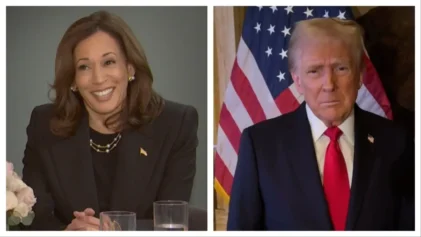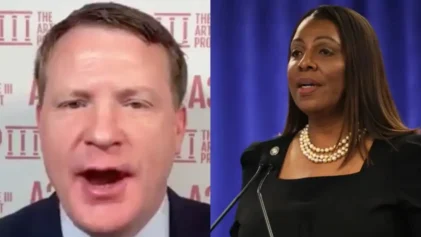Nigerian health officials are warning citizens against self-medicating with unproven treatments after a sudden spike in cases of chloroquine poisoning this week.
The urgent warning comes after three people ended up hospitalized in that country after overdosing on the anti-malaria drug, which U.S. President Donald Trump has been falsely touting as a treatment for COVID-19, CNN reports.
In a statement, Lagos State Health Ministry officials clarified that there is no “hard evidence that chloroquine is effective in preventing or managing COVID-19.” The fast-spreading disease, which can cause severe respiratory illness, has infected 42 people in Nigeria and hundreds of thousands more worldwide.
Despite warnings from public health officials that chloroquine hasn’t been proven effective at treating the virus, Trump has continued endorsing the drug. At a White House press briefing last Thursday, the president falsely claimed the “very powerful” drug — which is typically used to treat lupus, malaria and rheumatoid arthritis — had been approved by the U.S. Food and Drug Administration for treating coronavirus.
“It’s shown very encouraging — very, very encouraging early results,” he told reporters. “And we are going to be able to make that drug available almost immediately. And that’s where the FDA has been so great. They — they’ve gone through the approval process; it’s been approved.”
“There’s tremendous promise,” Trump, 73, added. “Normally the FDA would take a long time to approve something like that, and it’s — it was approved very, very quickly and it’s now approved, by prescription.”
That same day the FDA debunked the claim, however, saying in a statement that it had not approved the drug for that purpose, and it is currently “investigating” its effectiveness at combating the disease.
At Friday’s White House news conference, top U.S. virologist Dr. Anthony Fauci swept aside Trump’s claims about chloroquine to the president’s face. Standing at the lectern in the briefing room as Trump stood nearby, Fauci fielded a question about the president’s previous day’s claims about the drug being promising.
“The answer is no,” Fauci told reporters. He would go on to add, “The information that you’re referring to specifically is anecdotal. It was not done in a controlled clinical trial. So you really can’t make any definitive statement about it.”
Trump responded on the spot by seemingly contradicting the doctor, leaning into the microphone to say, “We’ll see. We’re going to know soon.”
The president spouted similar claims, without evidence, during a March 22 press briefing where he stated that the evidence pointing to chloroquine’s effectiveness at treating coronavirus was “very strong.”
When pressed about the unapproved drug, Trump replied: “Why should we be testing it in a test tube for a year and a half when we have thousands of people that are very sick, they’re very, very sick, and we can use it on those people and maybe make them better? And in some cases, maybe save their lives.”
The POTUS’ full-throated endorsement of the drug has since triggered price hikes on the medication. Lawyer Kayode Fabunmi, who’s based in the Nigerian city of Lagos, said he witnessed a significant surge — 400 percent to be exact — in the pricing of the drug.
“The pharmacist knew the market and was saying to every incoming customer, ‘You know, Donald Trump has said this thing cures coronavirus,’ and the price kept changing,” Fabunmi told CNN. “The original price was around 200 naira [about 52 cents], then it became 500 naira, then it became 1,000 naira while I was there.”
The Nigeria Centre for Disease Control (NCDC) has stated that scientists are still working hard to test and confirm a treatment for the new disease.
“Please DO NOT engage in self-medication,” the agency warned. “This will cause harm and can lead to death.”
One U.S. man wasn’t so lucky. The 68-year-old Arizona man passed away this week after ingesting an unknown amount chloroquine in hopes of warding off the virus. His wife, who fell ill after taking the drug as well, said they did it because “Trump kept saying it was it was basically pretty much a cure.”
The run on chloroquine has also left many lupus sufferers, including U.S. preschool teacher Bonnie Lieberman, rushing to get their hands on the drug, which is now in short supply.
“I physically don’t have any medication,” Lieberman told NBC News, noting the drug was on back order everywhere she checked. “To affect lupus patients this way is irresponsible and dangerous.”
Trump has continued to ignore statements from medical professionals, however, and doubled down on his claims in a pair of tweets Saturday, touting chloroquine as “one of the biggest game changers in the history of medicine.”


